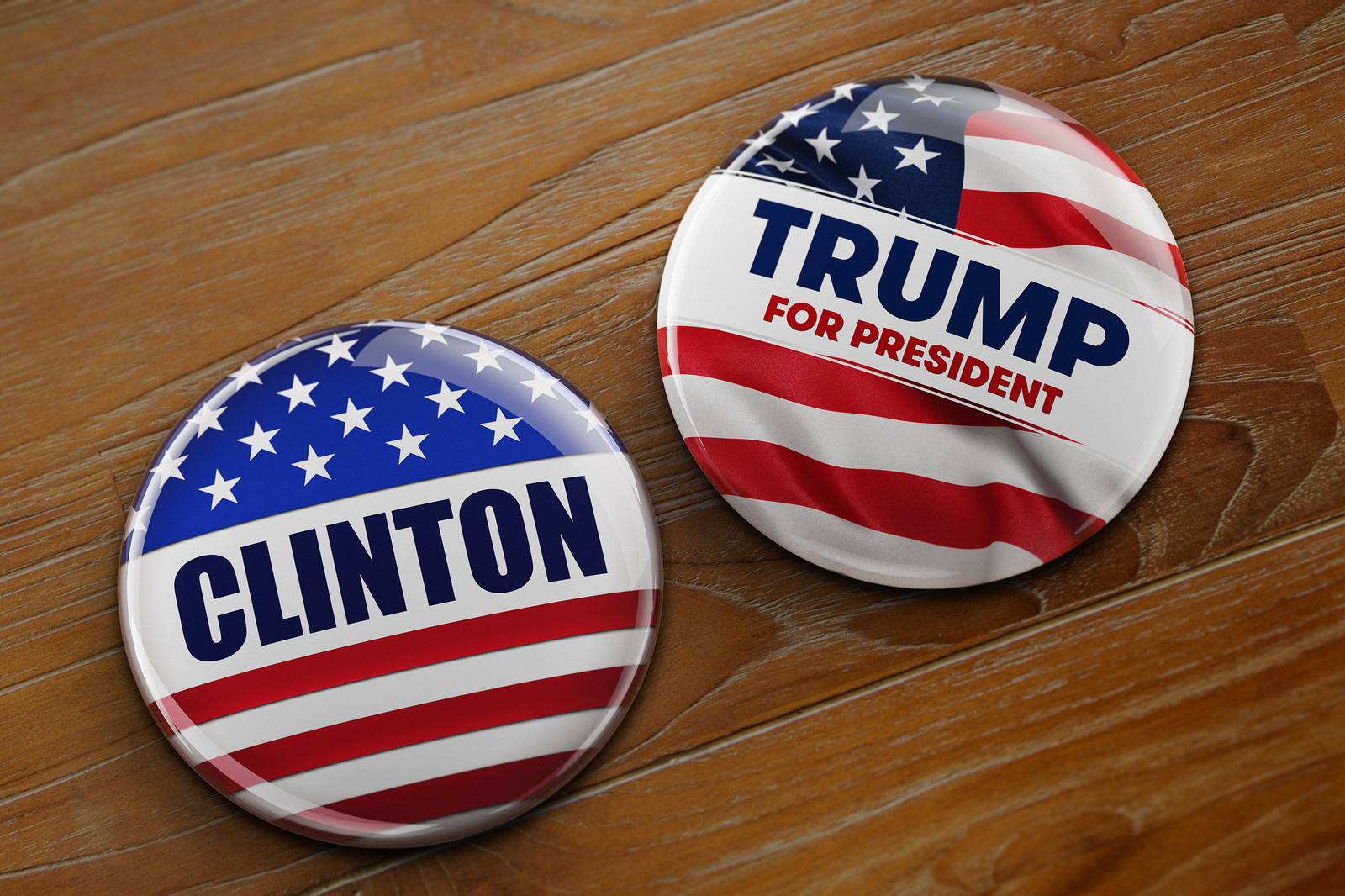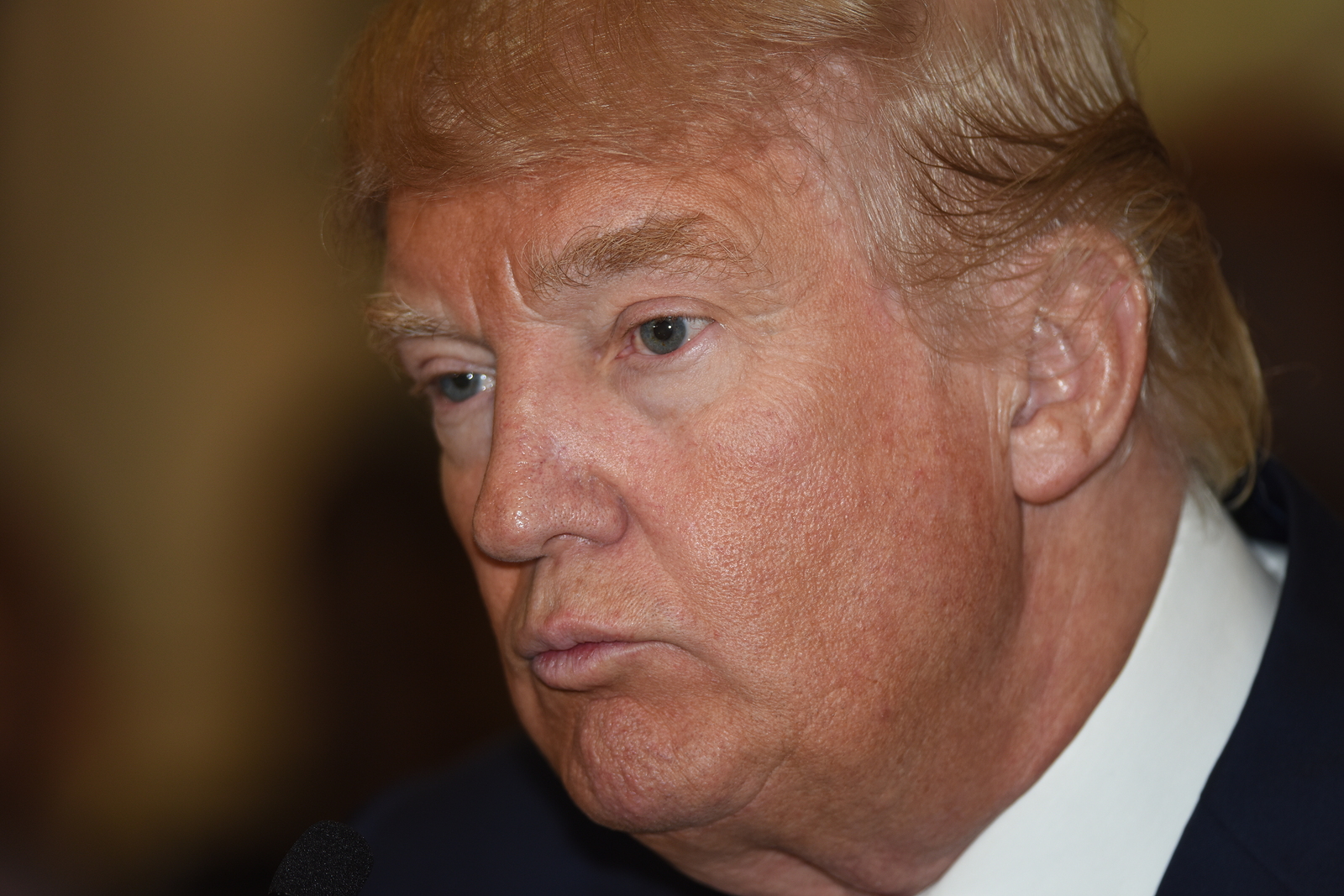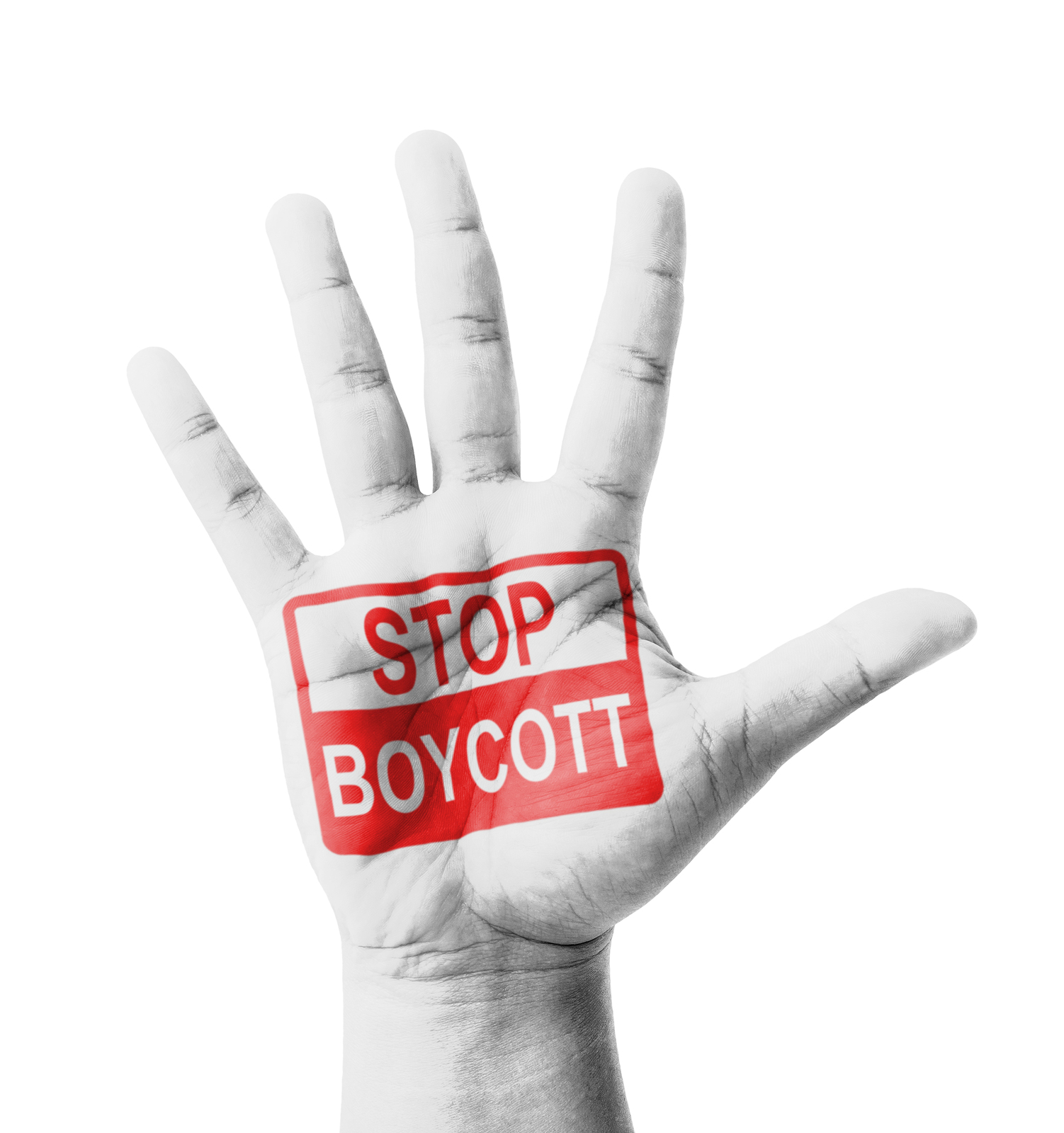
by Brian Hobbs | May 25, 2016
Sandwiched between the two most talked about, studied and fawned over generations ever (the Baby Boomers and Millennials), Gen X is the most forgotten about generation. As a member of Gen X, I sometimes feel like we are the Jan Brady of the family.
Whenever I hear of a new marketing campaign or study about the Boomers or Millennials, part of me wants to shout, “Marcia, Marcia, Marcia”!
Think about it. Boomers were the revolutionaries who popularized rock music and gave society the sexual revolution (with all its evils and ills). The Millennials are the cool new kids on the block, the ones we are (rightly) worried have left the church and will never come back.
But what about Gen X? We’re the forgotten ones, to some degree.
Of course, part of the reason is we’re the smallest generation (largely because of abortion and birth control). I did, however, find one cool study about Gen X.
In the Pew Research Forum’s article, “Generation X: America’s neglected ‘middle child’” we see other factors to make us stop and think.
The article says, “Gen Xers are bookended by two much larger generations – the Baby Boomers ahead and the Millennials behind – that are strikingly different from one another. And in most of the ways we take stock of generations – their racial and ethnic makeup; their political, social and religious values; their economic and educational circumstances; their technology usage – Gen Xers are a low-slung, straight-line bridge between two noisy behemoths.”
The piece also that Gen X are in the middle in more ways than one. They are not as politically conservative as Boomers nor as socially liberal as Millennials (could part of this be because of each one’s life stage, I wonder?).
The Pew article also showed we are in the middle when it comes to issues like use of technology, level of education, attitudes toward money and more.
Most importantly, Gen X was a bridge toward being “religiously unaffiliated,” which is a bad development any way you look at it. The article, which dates back a few years, is worth reading, especially if you are a child of the 1980s like me.
All that said, I need to beware generational pride and even envy. After all, we know that while generational studies are important, they only go so far. They are only important insofar as they tell us who we are in God’s Kingdom.
Jesus, after all, did not die for one generation. Jesus died for everyone. Remember: “For God so loved the world, that He gave His one and only Son that whosoever believes in Him shall not perish but shall have everlasting life” (John 3:16).
That promise is for Gen X, Baby Boomers, and Millennials—and for everyone, everywhere!

by Brian Hobbs | May 18, 2016
Last week, the Obama Administration’s U.S. Departments of Justice and Education released a sweeping directive to all public schools about transgender students, thus unleashing a national controversy.
According to the Administration, the letter (which can be found at www.justice.gov) simply helps “provide educators the information they need to ensure that all students, including transgender students, can attend school in an environment free from discrimination based on sex.”
What is really going on here, though, is more than a letter with some suggestions. The Administration is force-feeding an entire worldview of human sexuality on schools and tying money to it, specifically implying that schools federal funding could be in question, if they do not comply with the implementation of the directives.
Southern Baptist blogger Trevin Wax said the Obama directive will have four immediate ramifications: 1) It will blaze a trail toward tyranny, because this is such an obvious Federal overreach; 2) It will co-opt the language and moral authority of the Civil Rights movement of the 1960s; 3) It will promote a new vision of what it means to be human; and 4) It will cause Christians to explore new education options.
Christian parents and grandparents, even while we contend for the soul and future of public schools, must take a more active role in supporting and expanding Christian schooling options—both home and private schools.
The Wax piece is well worth reading, and I believe his fourth point is especially important to ponder. There are other must-reads on this issue, including this one from Andrew Walker, this one from the ERLC and this one from Russell Moore. Here are some key questions this issue raises:
How many transgendered people are there in America?
There is no way to know the real statistic. However, according to an ABC News article, there are some 700,000 transgendered people in the United States. The Williams Institute, a source that has been cited by groups like Baptist Press, has estimated “that .3 percent of the population identifies as transgender suggest(ing) at least 950,000 Americans perceive their gender identity as not matching their biological sex.” So, let’s pick the higher number and round up, saying there are 1 million Americans who self-identify as transgendered. This is only 1 million out of 318 million people who self-identify as transgendered.
How many transgendered people are there in American schools?
The ABC article also said, “’If you’re in a high school of 2,000 kids, you’re probably going to have somewhere between two and four trans kids in that school at any one time,’ says Dr. Norman Spack, the co-director of the gender management clinic at Boston Children’s Hospital.”
If we generously apply his math to the whole, saying that four out of every 2,000 high school students self identifies as transgendered, this equals .2 percent of the student population. If you take the Williams Institute’s number of .3 percent, and apply it to the approximately 15 million high school students in American public schools, that means there are 45,000 transgendered students in American public schools. That is not a drop in the bucket by any means, yet it is a remarkably smaller number than we are led to believe.
How many transgendered people are there in Oklahoma schools?
Again, there is no way to know this. But applying the generous .3 percent estimate, there are 185,000 public high school in Oklahoma, which means there are 555 transgendered young people in Oklahoma public schools. With nearly 1,800 public schools in this state, that is not even one person for every school.
What is the directive making schools do?
Under their radical, expanded understanding of Title IX laws, the Feds say, “Our federal civil rights law guarantees all students, including transgender students, the opportunity to participate equally in school programs and activities without sex discrimination as a core civil right.” The Supreme Court has not said Title IX applies here, but the Obama Administration does, hence the directive.
This means if a student or their parent/guardian simply say, “I was a boy and now I’m a girl” or “I was Tommy but now I am Sally,” everyone, from top to bottom must go along with it. Tommy (now “Sally”) must be allowed to play on the girls’ soccer team, use the girls’ locker room and bathroom and be called “Sally” by every faculty member and student, or face the consequences. There’s no doctors note required, no psychologist’s word of endorsement, no nothing. Just one student deciding they are now a different sex than they were at birth. Therefore, schools must make radical, costly structural and personnel accommodations that have never been required before, or else lose their Federal funding.
What’s the problem and what do we do now?
As Trevin Wax points out, this White House decree is a Federal overreach of the first order. Texas’ Lt. Governor went so far as to call it “blackmail,” because funding is attached to the demands. Whatever the case, these sweeping changes happened with virtually no public debate on the issue and with states and localities having limited-to-no input.
…though people who identify as transgendered is a very small number of the population, we must resist the tendency to marginalize or ostracize them.
What is more, every public school is required to make changes to bathrooms, locker rooms and sports without any track record as to how this affects order, decency and privacy of students. This simply cannot stand.
As Andrew Walker pointed out, people who are frustrated by this must do the following:
- “Schools should refuse to comply with the federal government’s overreach.”
- “Citizens should contact their elected representatives to register their dissatisfaction.”
- “Citizens need to take their frustration to the ballot box.”
- “State legislatures should pass laws that counteract this decree.”
- “We should see that actions like this invite God’s judgment on our land—as any rejection of Christ’s Lordship does.”
- “Christians should take stock of the cultural moment.”
- “Christian parents need to evaluate what this means for them and their children. They need to establish a tipping point. This may be the most important response to consider. What actions taken by your local school will be sufficient for you to re-evaluate public education?”
In conclusion, we are in a cultural tug of war which continues to escalate. The Obama Administration’s decree discouraged responsible public debate and only heightened tensions. Christians must stand strong in our convictions that we are made male and female by God (Genesis 1), and that God doesn’t make mistakes.
We also must recognize that though people who identify as transgendered is a very small number of the population, we must resist the tendency to marginalize or ostracize them. With compassion, we should love our transgendered neighbors in the Name of Christ and not politicize the issue.
Finally, Christian parents and grandparents, even while we contend for the soul and future of public schools, must take a more active role in supporting and expanding Christian schooling options—both home and private schools.
If these disturbing trends continue, and it comes time for an exodus from the public schools, our people will want to find Christian education options that feel like a land of milk and honey.

by Brian Hobbs | May 11, 2016
As things stand now, the presidential election this November will come down to Hillary Clinton versus Donald Trump. Conservative Christians who have voted for conservative candidates—Republicans and Democrats alike—in the past, are wrestling through what to do this election.
There are four general reactions I see among Christian conservatives and others:
1. ‘Let’s stay home’
No major leader appears to endorse this strategy, but some people online indicate that if they must choose between Hillary and Trump, they’ll just skip the vote. There are two major problems with this. The first is, not voting is a choice. We live in a Democracy (or Republic, depending on who you ask), and for Christians to forgo voting is vacating a duty of citizenship. Secondly, there are more races to consider than just the presidency. In fact, many times the actions of judges, governors, legislators, mayors and even state ballot questions have a more immediate impact on our daily lives than who sits in the White House. Before you just stay home, consider the consequences of your inaction, and consider that you will be letting others decide the outcome(s).
2. ‘Let’s hold our noses and vote for…’
At the outset, there are many who didn’t really want Trump (or Clinton). In fact, many of them were slow to get on the Trump or Clinton trains. Within Evangelical circles, many of these are now flocking to “Team Trump.” Indeed Evangelical leaders like Robert Jeffress and Mike Huckabee are supporting Trump with gusto. Their main reason appears to be that what America needs is not a perfect person in office—or even a good person for that matter. We need a strong leader. One observer said that Donald Trump and Hillary Clinton are a weak person’s idea of a strong person and not truly strong people. Be that as it may, these form of Trump supporters usually use the line of argument, “A vote for anyone else is a vote for Hillary.” I am the first to admit, they may be right. At the same time, many Christians cannot stomach the idea of voting for someone like Trump, even if it is the lesser of two evils, in their thinking.
3. ‘I can’t vote Hillary and won’t vote Trump. Let’s find another person to vote for’
U.S. Senator Ben Sasse of Nebraska and a growing chorus of others appear to want a third party option to emerge. Time is running out for this option. There are significant reasons to think Libertarian Party candidate Gary Johnson, who formerly was Governor of New Mexico, may emerge as a third option. Johnson’s candidacy is fraught with its own problems, such as his support for legalized prostitution. Southern Baptist leader Russell Moore has spoken about finding a third party. Dr. Moore has said, “Given (my) moral convictions, there have been times when I’ve faced two candidates, both of whom were morally disqualified. In one case, one candidate was pro-life but a race-baiter, running against a candidate who was pro-choice. I could not in good conscience put my name on either candidate. I wrote in the name of another leader. Other times, I’ve voted for a minor party candidate.” Currently, though, those who want to vote third party have slim pickings.
4. ‘Let’s write in a name or leave it blank’
Russell Moore also said, “When Christians face two clearly immoral options, we cannot rationalize a vote for immorality or injustice just because we deem the alternative to be worse. The Bible tells us we will be held accountable not only for the evil deeds we do but also when we “give approval to those who practice them (Rom. 1:32).” Some agree with Dr. Moore and some do not. In Oklahoma, a write-in ballot is not allowed. You can, however, leave the presidential candidate blank and vote for other offices and issues. If enough Christians did this, one benefit would be to send a signal that we don’t want any of these leaders and believe it would be wrong to simply go along with “the lesser of two evils.” The practical outcome, however, means that those who don’t leave it blank get the final say-so.
In the end, Christians must prayerfully determine what God—not what people or a political Party—is asking us to do. Because, after all, it is God Who holds us accountable for the leaders we help to power, or that He allows to rise to power. Lord, help us.

by Brian Hobbs | May 4, 2016
Donald Trump’s sudden rise to the Republican presidential nomination has been as historic as it has been sensational. Claiming to attract new voters to the Republican Party, Trump also has alienated and offended enough parts of the GOP, giving rise to the movement and distinct social media hash tag, #NeverTrump.
These people, in the wake of Trump’s victory in Indiana that took out his last standing rival Ted Cruz, today are posting comments online like “It’s Mourning in America” and citing the poignant Alexander Hamilton quote, “If we must have an enemy at the head of Government, let it be one whom we can oppose, and for whom we are not responsible.” In other words, these Republicans will not—no matter what—support Donald Trump, even against the likes of Hillary Clinton (or a third party candidate).
This gives rise to the question, who is #NeverTrump and what impact will they have in November? I will leave it up to political experts and pundits, and time itself, to tell the answer to the second question. Though the obvious answer is if there are enough #NeverTrump people, someone else will win the presidency.
I see at least three groups, as part of #NeverTrump, who traditionally vote with the GOP:
- Social conservative Republicans who actively attend church. Southern Baptist leader Dr. Russell Moore along with other social conservatives have been vocal critics of Donald Trump’s character and platform. This wing of #NeverTrump cannot stomach’s Trump’s personal history of serial adultery and divorce, and his coarse language toward large groups of people in society. Above all, this wing of #NeverTrump seems unwilling to give the reins of power to Mr. Trump, largely because of character issues.
- National security Republicans & Neoconservatives. A major wing of the GOP under Ronald Reagan were people who consider national security above all issues, and parts of this group seem to populate #NeverTrump. These Republicans seem to distrust Trump’s foreign policy temperament and instincts. They “would not entrust the nuclear codes to such a loose cannon” nor do they want America to become more isolationist. The people tend to read publications like National Review or The Weekly Standard.
- Business/Chamber of Commerce Republicans. These people, who read publications like Fortune magazine or The Wall Street Journal, have been part of the GOP for a long time (think of Mitt Romney). This election cycle, many from this “camp” seem unimpressed by Trump’s business talk and background. I think they look at Mr. Trump as that crass, new money person who has crashed their cocktail party.
The #NeverTrump people within the GOP may be few in ranks and less influential than some might have thought, seeing as they were not able to stop Trump from getting where he is today. That being said, there may be enough of them who, though they cannot stomach the thought of President Hillary Clinton, will find another option somehow, some way.
As an Evangelical Christian with socially-conservative views, I am most interested in group number one of #NeverTrump. Time will tell if they change their tune or stick to the #NeverTrump pledge.
One thing is for sure. This presidential race is by no means over. To borrow a Churchill phrase, we are not at the end. We are not even at the beginning of the end. We may, however, be at the end of the beginning.
Whether you are #NeverTrump or not, I would encourage you to pray for our country. Let’s ask God to give us the leader we need, not the leader we deserve. As Christians, whether we are part of #NeverTrump or not, we need to be seen as #AlwaysForJesus!

by Brian Hobbs | May 3, 2016
Boycott (ˈbȯi-ˌkät) – Verb: “to refuse to buy, use, or participate in (something) as a way of protesting: to stop using the goods or services of (a company, country, etc.) until changes are made.”
Boycotts are all the talk of late. We have progressives promising not to travel to entire states because they disagree with policies enacted by the state legislature. We have an aging rock star cancelling a concert in a state with which he disagrees.
Recently, another business, this time the retail giant Target, became the target of an orchestrated boycott. Since it is fellow Christians taking up this boycott, let me examine this as a test case for a moment.
The American Family Association has circulated a pledge at which people can publicly say they will not shop at Target, because of the company’s recent policy of “inclusion” and of open bathrooms and fitting rooms, regardless of sex.
I know more than one family who has joined the boycott and will not give the retailer their business, as long as the company will not keep men’s rooms for males and women’s rooms for women. At the same time, I know more than one person who disagrees with what Target did, but is against the boycott, even is annoyed at the notion.
Russell Moore, one of the people I respect most in Christian thought today, has a must-read article about whether Christians should boycott Starbucks, from 2012, when the same-sex marriage debate was reaching new heights.
Dr. Moore says, “It’s not that I’m saying a boycott in and of itself is always evil or wrong. It’s just that, in this case (and in many like it) a boycott exposes us to all of our worst tendencies. Christians are tempted, again and again, to fight like the devil to please the Lord. A boycott is a display of power, particularly of economic power. The boycott shows a corporation (or government or service provider) that the aggrieved party can hurt the company, by depriving it of revenue. The boycott, if it’s successful, eventually causes the powers-that-be to yield, conceding that they need the money of the boycotting participants more than they need whatever cause they were supporting. It is a contest of who has more buying power, and thus is of more value to the company. We lose that argument.”
I agree with every word Dr. Moore wrote, and I did not personally join the Starbucks boycott (though I second guessed my motives, because I like their coffee and did not want to give it up). Regarding Target, I have not yet joined the boycott (though again, I second guess my motives, because I prefer shopping there over Wal-Mart).
At the same time, I am increasingly concerned about those who would have us think boycotts are never appropriate or effective. I can point out three times in recent history that boycotts worked to some effect, each in cases that popular society today would applaud the eventual outcome.
/// Abolitionists boycott sugar to fight slavery
While British abolitionist and Christian leader William Wilberforce was not a driving force in the boycott, many in Britain refused to buy sugar cane manufactured by slave plantations. This weakened Britain’s wealth from slave labor. While it took a man like Wilberforce to make abolition happen, the boycott played a role.
/// Gandhi boycotts British clothes to fight for India’s independence
For a recent non-Christian and controversial example, look at Mohandas Gandhi and others who joined him in the fight for India’s independence. They boycotted Western clothes, specifically those made by the British Empire. Ultimately, out of a variety of factors, India won its independence and the boycott played a significant role.
/// King boycotts buses to end segregation
Martin Luther King, Jr. and his followers, for more than a year, boycotted city buses in Montgomery, Alabama, in protest of segregated seating. This boycott was key in Dr. King’s rise to prominence, and it was a key chapter in the fight toward desegregation in America, without which it may not have happened as it did.
Each of these examples is a rare exception. Most boycotts do not have the full impact as these, for reasons Dr. Moore illustrates in his column. Lastly, I agree with Dr. Moore that prayer and positive cultural engagement are better tools than mere boycott.
The Target boycott will almost assuredly come and go, as have others. But I would venture to say that the very notion of boycotting boycotts altogether will come and go, as well.




